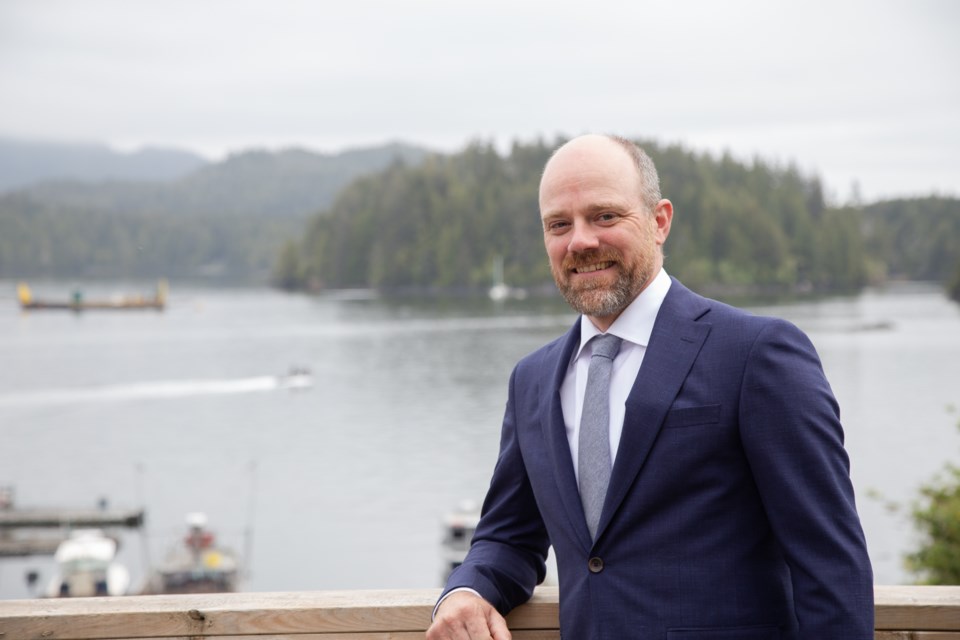Water supply has long been a concern on Vancouver Island, and calls for conservation are growing louder due to prolonged drought.
Despite a low snowpack, 2024 is looking better than last year due to a cool, wet spring, ÎÚÑ»´«Ã½ River Forecast Centre hydrologist Jonathan Boyd said.
“It’s a very long-term drought,” said Boyd. “But, in the immediate short term, it has been on the positive side of being low-impact.”
That’s a switch from last August when extreme drought led to temporary fish population protection orders on the Tsolum, Koksilah and Cowichan rivers, restricting water use for industry and forage crops.
But that doesn’t mean things couldn’t change, as an intense heat wave in early July showed.
“We may see conditions on Vancouver Island deteriorate pretty quickly because of the hot, dry weather,” Boyd explained.
One of the wettest places in ÎÚÑ»´«Ã½ during fall and winter, the District of Tofino issued an urgent water conservation call last September.
It has since announced a 20-year water master plan prepared by engineering firm McElhanney, which identifies a water supply deficit and recommends securing an alternative water source and more water treatment capacity.
“We can expect extended, more severe droughts, and we had to get on top of this,” said Tofino Mayor Dan Law.
Tofino’s water supply, which comes from three reservoirs, is in better shape this summer due to a rainy spring, according to Law.
"We don’t anticipate any issues this summer, but we’re looking into the future,” he explained.
The district has been upgrading its water infrastructure in recent years, including installing a new bypass valve and leak detection equipment. It’s also implementing ways to get businesses to use less water.
“We just rewrote our utility rate structure so it better reflected the largest water users in the most critical months,” Law told Western Investor.
The district was successful in getting Cermaq’s fish processing plant, which uses a “tremendous amount” of water, to stop harvesting salmon during August, Law said.
While spreading the word about conserving water, Tofino is also planning a limits-to-growth policy.
The community of about 2,500 people attracts 750,000 visitors annually, mostly in summer.
Judy Gray, owner of Re/Max Mid-Island Realty, said while Tofino’s water supply is not affecting property sales, growth is limited. Gray added that wildfires are a challenge, and high interest rates and the cost of living are making buyers hesitant.
“Last year, we had road closures because of a forest fire that cut off the highway,” said Gray. “This year, people can get here. They are looking at real estate but are not necessarily making a buying decision.”
Mount Washington, which had a water shortage issue about four years ago, has seen limited impact on buyer activity during the current drought, said Courtney-based Royal LePage agent Rick Gibson.
“The problem we had was storage, not collection,” said Gibson. “We would have run out of water, but with the warm weather that came through, that melted the snow and kept the precipitation going which filled up the aquifers.”
Gibson said while there’s adequate water on Mount Washington, there’s not enough for future development.
The ÎÚÑ»´«Ã½ government recently announced an additional $80 million for its , which funds on-farm irrigation infrastructure and water storage. The province launched the program in June 2023 with an initial $20 million fund.
In June, the Cowichan Valley Regional District’s board agreed to work with the Koksilah (Xwulqw’selu) Watershed planning process organizers to apply for AWIP funding.
“Water storage is an important part of the picture, and it’s something that we’ve heard from the agricultural sector and other residents,” said Natasha Overduin, joint executive director of the Koksilah’s planning process.
The ÎÚÑ»´«Ã½ government and Cowichan Tribes, partners in the planning process, are also developing the province’s first water sustainability plan in the Koksilah.



